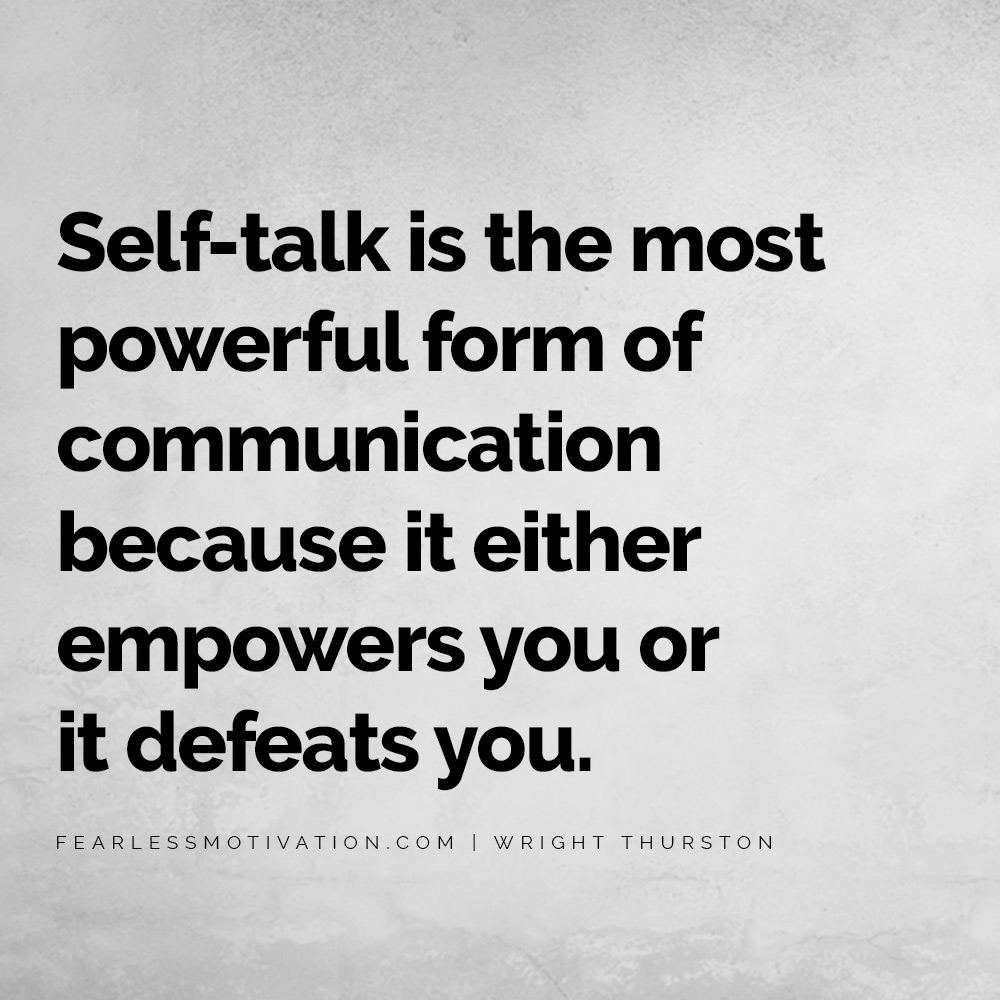The Power of Self-Talk: How Negative Self-Talk Affects Your Mental Health
In the hustle and bustle of daily life, we often forget to pay attention to one of the most significant conversations we have – the one with ourselves. Our inner dialogue, known as self-talk, can profoundly impact our mental health. Being mindful of what we say to ourselves is crucial, as negative self-talk can have detrimental effects on our well-being. Lets explore the importance of being cautious about our self-talk and how it can improve our mental health.
Understanding Self-Talk:
Self-talk is the constant stream of thoughts and feelings that flow through our minds. It influences how we perceive ourselves, others, and the world around us. Whether positive or negative, our self-talk shapes our attitudes, beliefs, and behaviors. Being mindful of our self-talk enables us to recognize any harmful patterns and replace them with healthier alternatives.
The Impact of Negative Self-Talk:
Negative self-talk can be insidious, leading to increased stress, anxiety, and depression. When we constantly berate ourselves with critical statements, such as “I’m not good enough” or “I always mess things up,” we erode our self-esteem and confidence. This negativity can create a cycle of self-doubt and hinder personal growth and fulfillment.
Recognizing Negative Self-Talk:
To combat negative self-talk, it is essential to identify it first. Pay attention to your thoughts and emotions throughout the day. Notice any recurring patterns of self-criticism or self-judgment. Awareness is the first step in breaking free from the grips of negativity.
Challenging Negative Thoughts:
Once you identify negative self-talk, challenge its validity. Ask yourself if there is evidence to support these thoughts. Often, you’ll find that these thoughts are based on assumptions and not facts. Replace negative thoughts with positive affirmations or more realistic and constructive statements.
Cultivating Positive Self-Talk:
Fostering positive self-talk is a journey that requires practice and patience. Begin by acknowledging your strengths and accomplishments, no matter how small. Remind yourself that making mistakes is a natural part of learning and growing. Embrace self-compassion and treat yourself with the same kindness you’d offer to a friend in need.
Surrounding Yourself with Positivity:
The company we keep can influence our self-talk. Surround yourself with supportive and positive individuals who uplift and encourage you. Engage in activities that bring you joy and fulfillment. The more positive experiences you have, the more your self-talk will naturally shift towards optimism.
Seeking Professional Support:
If negative self-talk significantly impacts your mental health and well-being, consider seeking help from a mental health professional. They can provide valuable insights, coping strategies, and support to address the root causes of negative self-talk.
Being mindful of our self-talk and its impact on our mental health is a powerful tool for personal growth and happiness. By replacing negative thoughts with positive affirmations, practicing self-compassion, and seeking support when needed, we can nurture a healthier mindset and cultivate a positive outlook on life. Remember, you have the power to shape your thoughts and create a positive, empowering inner dialogue. Let your self-talk be your ally in building a resilient and confident version of yourself.





